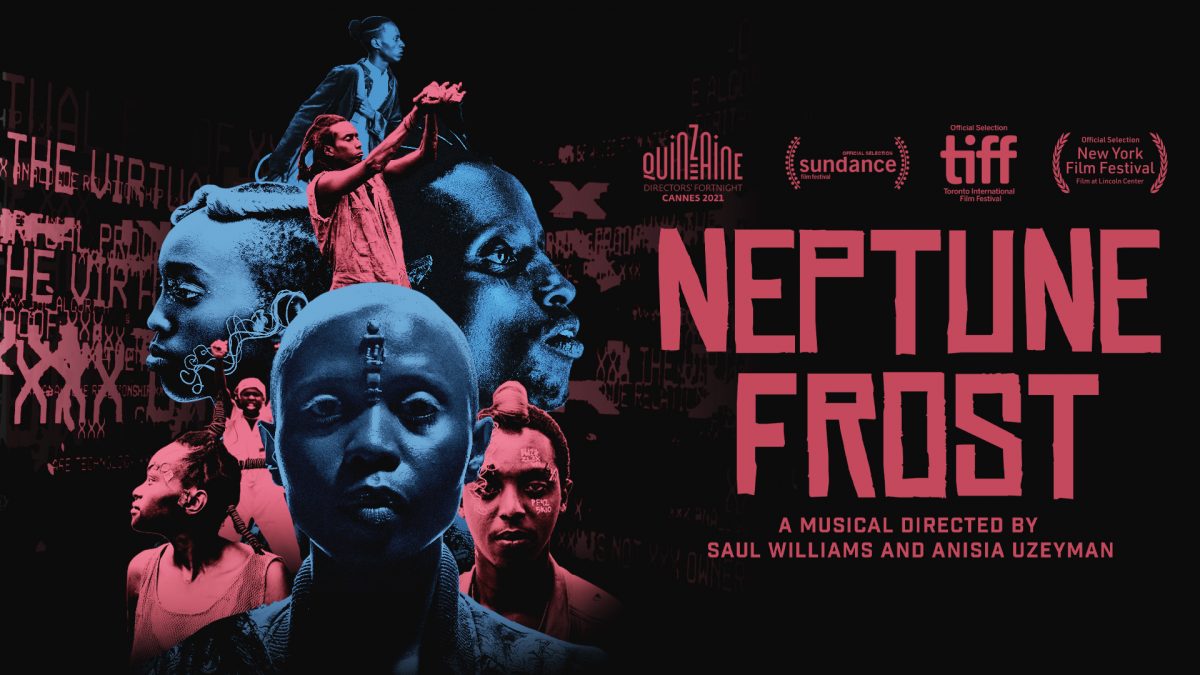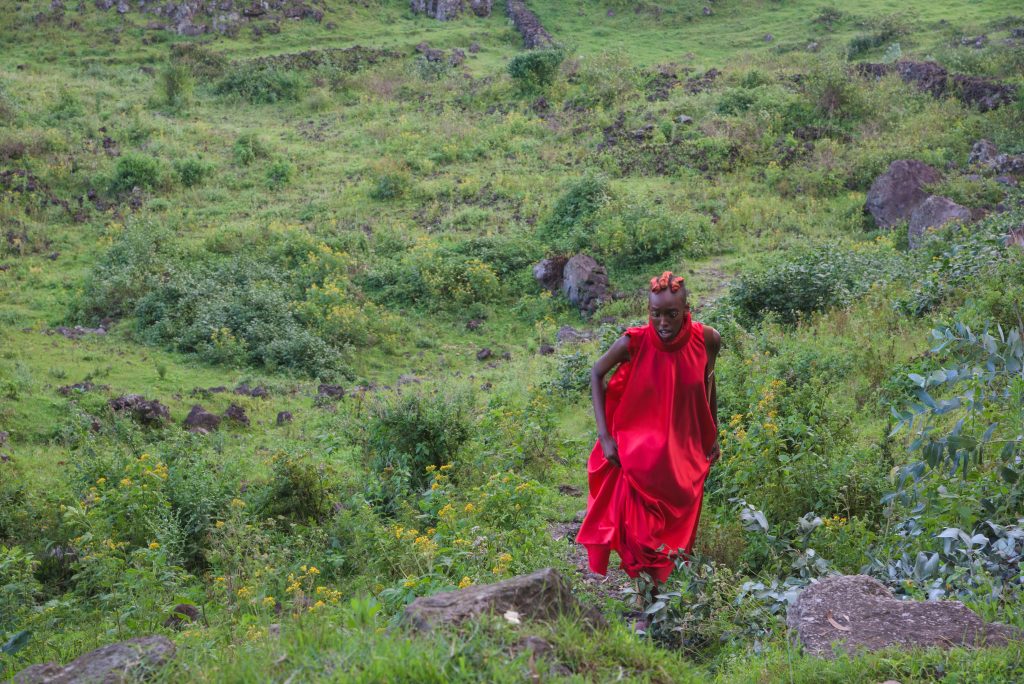“Neptune Frost” is an Afro-futuristic musical unlike anything you’ve seen
The musical tells the story of escaped miners who form an anti-colonialist computer hacker collective in the hilltops of Burundi.

Neptune Frost promotional poster.
“Neptune Frost” is a critically acclaimed film from multidisciplinary artist Saul Williams and Rwandan-born cinematographer Anisia Uzeyman. Presented as a dynamic Afro-futuristic musical, it tells the story of escaped coltan miners who form an anti-colonialist computer hacker collective in the hilltops of Burundi. They attempt to take over the country’s brutal authoritarian regime, which is exploiting the region’s natural resources and its people.
“This has been a dream that has been a long time in the making,” Williams says of the film.
Set between states of being – past and present, dream and waking life, colonized and free, male and female, memory and prescience – the film follows an intersex runaway who crosses paths with one of the escaped miners, and their connection sparks glitches within the greater divine circuitry. Williams says this duality was reflective of existing mythologies.
“Our film is not a documentary. It’s actually a joyful celebration of Black ingenuity, of the power that lies within us.” —Saul Williams
“We told this story to an elder Burundian woman who we were auditioning for the film, who was very religious and who we thought might be turned off by the story of this transformation. When we told her the story of the film, her response was, ‘Oh, that’s an old Burundian folk tale. I know this story.’”

While it is rooted in real concepts, Williams says the film is more than a biopic.
“Our film is not a documentary. It’s actually a joyful celebration of Black ingenuity, of the power that lies within us.”
He says the project benefitted from having a cast and crew who were from Rwanda and Burundi, where the film was shot.
“I think it’s a gift for us here in this country, because it allows us to bask in African languages that we don’t hear unless we happen to be in certain communities that connect us to it. Otherwise, we operate in a system that says, ‘This thing isn’t going to sell unless it’s in English, this thing isn’t going to sell unless there’s a star in it, blah, blah, blah.’”
Uzeyman insists that the optimal viewing experience is in the theater.
“Please go see this on a big screen because there is a beautiful, amazing collaboration in terms of music, sound and imagery.”
The final screening of the film will be on Thursday at Cinema Detroit, and Williams says you won’t want to miss it.
“One thing we can guarantee for any viewer who is listening now: You’ve never seen anything like it. That, we know.”
Photos courtesy of Saul Williams
Listen: Saul Williams and Anisia Uzeyman talk connection between technology and mythology.
Trusted, accurate, up-to-date.
WDET strives to make our journalism accessible to everyone. As a public media institution, we maintain our journalistic integrity through independent support from readers like you. If you value WDET as your source of news, music and conversation, please make a gift today.

